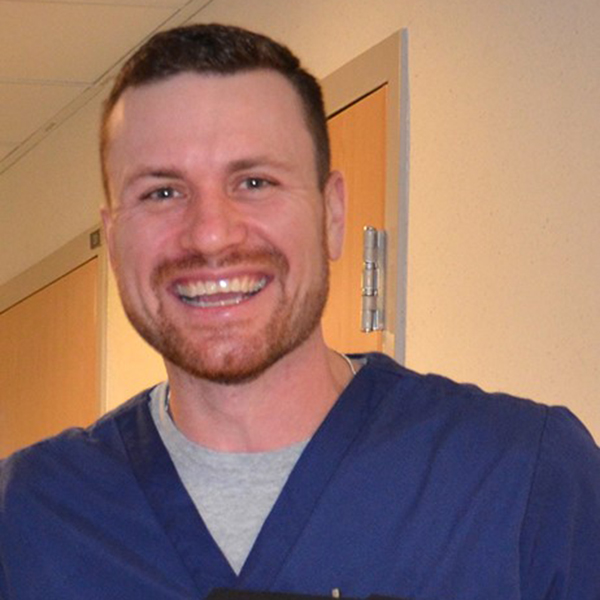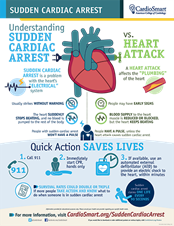Sudden Cardiac Arrest Awareness Month
October is Sudden Cardiac Arrest (SCA) Awareness Month.
During this month, it's a terrific opportunity for those of us in the cardiovascular team to review current literature and best practices for treatment and prevention of sudden cardiac death (SCD). ACC.org and JACC Journals are rife with literature and information on SCD, leading causes of SCD, and potential treatment options for secondary prevention of SCD. ACC's CardioSmart also provides educational information and infographics for patients, families, and others.
While SCA has been around presumably for the entire existence of the human race, first-line treatment for SCA in the form of cardiopulmonary resuscitation (CPR) has only been officially around and endorsed for the past 60 years.
The American Heart Association developed CPR in 1960 when it was first referred to as close-chest cardiac resuscitation and was only taught to physicians. By 1963 the AHA had formally endorsed CPR as a treatment and in 1972 CPR instruction became available to the public. As data have evolved over time, so have the standards of CPR for health care providers and the layperson. Hands-only CPR has been taught to general citizens since 2008 as the first immediate treatment for someone experiencing SCA and the more pervasive existence and availability of automated external defibrillators (AED) has increased survival from SCA in certain circumstances over time. Unfortunately, according to data from the CARES Registry, survival rates from SCA dropped in 2020 from 10.5% to 9%1.
What can the cardiovascular team do to increase survival rates from SCA? Educate.
We can educate ourselves on current best practices for resuscitation by maintaining current certifications in Basic Life Support as well as Advanced Cardiac Life Support and Pediatric Advanced Life Support, if applicable. We can educate our patients at risk and their family members on the importance of early intervention in the form of CPR if cardiac arrest occurs. We can become CPR instructors and go out into our communities and provide education to as many people as possible.
We can also become advocates on behalf of our patients and push for legislation.
Just over 2 years ago, ACC's Pennsylvania Chapter scored a large victory in the form of Act 7 of 2019. This law requires all students graduating from high school to partake in a curriculum that includes hands-only CPR as well as training in application and use of an AED. Nearly 40 states have similar laws, but we still must continue to push our elected officials at all levels of government to encourage and lend support to training and education for CPR and AED use. It's not enough until this type of law is enacted in all 50 states within the U.S. and in secondary education throughout the globe.
If you would like to further your own education on SCA, view the on-demand webinar presented by ACC's Electrophysiology and Sports and Exercise Cardiology Member Sections, "Sudden Cardiac Arrest Preparedness: Pre-Participation Evaluation to the Emergency Action Plan."
Join the conversation on Twitter! Follow @ACCinTouch and use the hashtags #ACCCVT, #SCAAwarenessMonth and #SuddenCardiacArrest.
References:
- 2020 Annual Report Cardiac Arrest Registry to Enhance Survival. 2020 CARES Annual Report. (n.d.). Retrieved October 1, 2021, from https://mycares.net/sitepages/uploads/2021/2020_flipbook/index.html?page=48.

This article was authored by Adam Burget, RN. Twitter: @adamburget
This content was developed independently from the content developed for ACC.org. This content was not reviewed by the American College of Cardiology (ACC) for medical accuracy and the content is provided on an "as is" basis. Inclusion on ACC.org does not constitute a guarantee or endorsement by the ACC and ACC makes no warranty that the content is accurate, complete or error-free. The content is not a substitute for personalized medical advice and is not intended to be used as the sole basis for making individualized medical or health-related decisions. Statements or opinions expressed in this content reflect the views of the authors and do not reflect the official policy of ACC.


